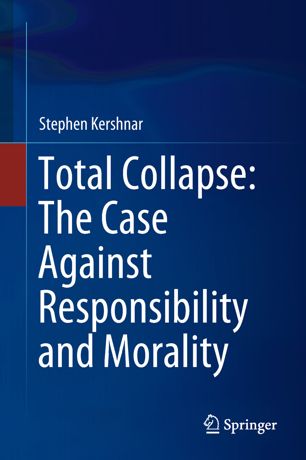

Most ebook files are in PDF format, so you can easily read them using various software such as Foxit Reader or directly on the Google Chrome browser.
Some ebook files are released by publishers in other formats such as .awz, .mobi, .epub, .fb2, etc. You may need to install specific software to read these formats on mobile/PC, such as Calibre.
Please read the tutorial at this link: https://ebookbell.com/faq
We offer FREE conversion to the popular formats you request; however, this may take some time. Therefore, right after payment, please email us, and we will try to provide the service as quickly as possible.
For some exceptional file formats or broken links (if any), please refrain from opening any disputes. Instead, email us first, and we will try to assist within a maximum of 6 hours.
EbookBell Team

4.1
10 reviewsThis book argues that there is no morality and that people are not morally responsible for what they do. In particular, it argues that what people do is neither right nor wrong and that they are neither praiseworthy nor blameworthy for doing it. Morality and moral responsibility lie at the heart of how we view the world. In our daily life, we feel that people act rightly or wrongly, make the world better or worse, and are virtuous or vicious. These policies are central to our justifying how we see the world and treat others. In this book, the author argues that our views on these matters are false. He presents a series of arguments that threaten to undermine our theoretical and practical worldviews. The philosophical costs of denying moral responsibility and morality are enormous. It does violence to philosophical positions that many people took a lifetime to develop. Worse, it does violence to our everyday view of people. A host of concepts that we rely on daily (praiseworthy, blameworthy, desert, virtue, right, wrong, good, bad, etc.) fail to refer to any property in the world and are thus deeply mistaken. This book is of interest to philosophers, lawyers, and humanities professors as well as people interested in morality, law, religion, and public policy.